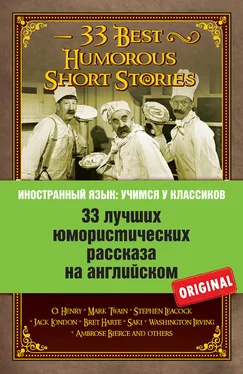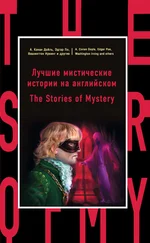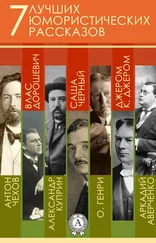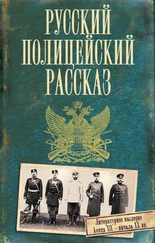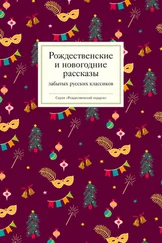…Her complexion neither dark nor fair, and her religion was neither Protestant nor Roman Catholic. She was not a prohibitionist but never took more than a couple of gins at a time. Her motto was, ‘No, boys, that’s all I can hold.’
That at least is about the spirit of the description. But even at that, description of what is called her ‘person’ is not sufficient by itself. There is the question of her ‘temperament’ as well. Unless a heroine has ‘temperament’ she can’t get by; and temperament consists in undergoing a great many physiological changes in a minimum of time. Here, for example, are the physiological variations undergone by the heroine of a book I read the other day, in what appeared to be a space of seventeen minutes:
A new gladness ran through her.
* * *
A thrill coursed through her (presumably in the opposite direction).
* * *
Something woke up within her that had been dead.
* * *
A great yearning welled up within her.
* * *
Something seemed– to go out from her that was not of her nor to her.
* * *
Everything sank within her.
That last means, I think, that something had come unhooked.
But, you see, by this turn the novel has reached what the diplomats call an impasse, and plainer people simply a cul de sac or a nec plus ultra. It can’t get on. They arrested the butler. He didn’t do it. Apparently nobody did it.
In other words all detective stories reach a point where the reader gets impatient and says to himself: ‘Come now; somebody murdered Sir Charles! Out with it.’ And the writer has no answer. All the old attempts at an answer suitable for literary purposes have been worn thin. There used to be a simple and easy solution of a crime mystery by finding that the murder was done by a ‘tramp.’ In the old Victorian days the unhappy creature called a tramp had no rights that the white man had to respect, either in fiction or out of it. They’d hang a tramp as unconcernedly as they’d catch a butterfly. And if he belonged to the. class called a ‘villainous-looking tramp’ he registered as A.I.,and his execution (indicated but not described) was part of the happy ending, along with Margaret Althorpe’s marriage to the Poor Nut as a by-product on the side – not of course to the Great Detective. Marriage is not for him. He passes on to the next mystery, in which ‘royalty’ itself is deeply concerned.
* * *
But all the tramp stuff is out of date. With a hundred million people ‘on the dole’ and on ‘relief,’ we daren’t set them to work at murder. We have to get another solution.
Here is one, used for generations but still going fairly strong. The murderer is found; oh, yes, he’s found all right and confesses his guilt, but it is only too plain that his physical condition is such that he must soon ‘go before a higher tribunal.’ And that doesn’t mean the supreme court.
It seems that at the moment when the Great Detective and Inspector Higginbottom have seized him he has developed a ‘hacking cough.’ This is one of those terrible maladies known only in fiction – like ‘brain fever’ and a ‘broken heart,’ for which all medicine is in vain. Indeed in this case, as the man starts to make his confession, he can hardly talk for hacks.
‘Well’ said Garth, looking round at the little group of police officers, ‘the game is up – hack! hack! —and I may as well make a clean breast of it – hack, hack, hack.’
Any trained reader when he hears these hacks knows exactly what they are to lead up to. The criminal, robust though he seemed only a chapter ago when he jumped through a three-story window after throttling Sub-Inspector Juggins half to death, is a dying man. He has got one of those terrible diseases known to fiction as a ‘mortal complaint.’ It wouldn’t do to give it an exact name, or somebody might get busy and cure it. The symptoms are a hacking cough and a great mildness of manner, an absence of all profanity, and a tendency to call everybody ‘you gentlemen.’ Those things spell finis.
In fact, all that is needed now is for the Great Detective himself to say, ‘Gentlemen’ (They are all gentlemen at this stage of the story.), ‘a higher conviction than any earthly law has, et cetera, et cetera.’ With that, the curtain is dropped, and it is understood that the criminal made his exit the same night.
That’s better, decidedly better. And yet, lacking in cheerfulness, somehow.
In fact this solution has something a little cowardly about it. It doesn’t face the music.
One more of these futile solutions may be offered. Here’s the way it is done.
The Great Detective stood looking about him, quietly shaking his head. His eye rested a moment on the prostrate body of Sub-Inspector Bradshaw, then turned to scrutinize the neat hole drilled in the glass of the window.
‘I see it all now,’ he murmured. ‘I should have guessed it sooner. There is no doubt whose work this is.’
‘Who is it?’ I asked.
‘Blue Edward,’ he announced quietly.
‘Blue Edward!’ I exclaimed.
‘Blue Edward,’ he repeated.
‘Blue Edward!’ I reiterated, ‘but who then is Blue Edward?’
This, of course, is the very question that the reader is wanting to ask. Who on earth is Blue Edward? The question is answered at once by the Great Detective himself.
‘The fact that you have never heard of Blue Edward merely shows the world that you have lived in. As a matter of fact, Blue Edward is the terror of four continents. We have traced him to Shanghai, only to find him in Madagascar. It was he who organized the terrible robbery at Irkutsk in which ten mujiks were blown up with a bottle of Epsom salts.
‘It was Blue Edward who for years held the whole of Philadelphia in abject terror, and kept Oshkosh, Wisconsin, on the jump for even longer. At the head of a gang of criminals that ramifies all over the known globe, equipped with a scientific education that enables him to read and write and use a typewriter with the greatest ease, Blue Edward has practically held the police of the world at bay for years.
‘I suspected his hand in this from the start. From the very outset, certain evidences pointed to the work of Blue Edward’
After which all the police inspectors and spectators keep shaking their heads and murmuring, ‘Blue Edward, Blue Edward,’ until the reader is sufficiently impressed.
The fact is that the writer can’t end the story, not if it is sufficiently complicated in the beginning. No possible ending satisfies the case. Not even the glad news that the heroine sank into the Poor Nut’s arms, never to leave them again, can relieve the situation. Not even the knowledge that they erected a handsome memorial to Sir Charles, or that the Great Detective played the saxophone for a week can quite compensate us.
I don’t think much of Stephen Mackaye any more, though I used to swear by him. I know that in those days I loved him more than my own brother. If ever I meet Stephen Mackaye again, I shall not be responsible for my actions. It passes beyond me that a man with whom I shared food and blanket, and with whom I mushed over the Chilcoot Trail, should turn out the way he did. I always sized Steve up as a square man, a kindly comrade, without an iota of anything vindictive or malicious in his nature. I shall never trust my judgment in men again. Why, I nursed that man through typhoid fever; we starved together on the headwaters of the Stewart; and he saved my life on the Little Salmon. And now, after the years we were together, all I can say of Stephen Mackaye is that he is the meanest man I ever knew.
Читать дальше
Конец ознакомительного отрывка
Купить книгу
